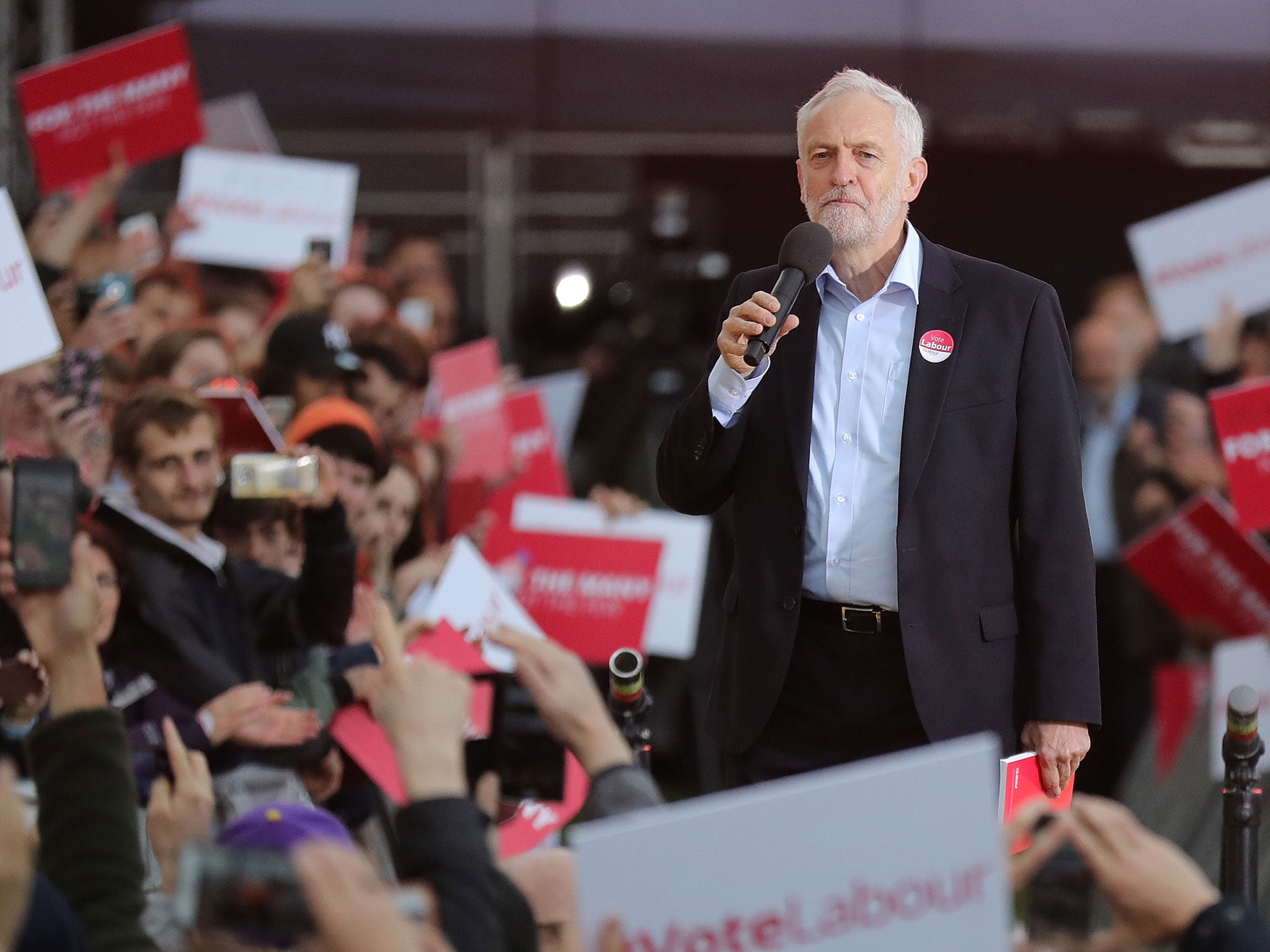Young voters will head to the ballot box to teach their elders a lesson at this general election
It is plausible to suppose that more of the 18-24 age group are learning the bitter lessons of the 2015 general election and the EU referendum last year

Your support helps us to tell the story
From reproductive rights to climate change to Big Tech, The Independent is on the ground when the story is developing. Whether it's investigating the financials of Elon Musk's pro-Trump PAC or producing our latest documentary, 'The A Word', which shines a light on the American women fighting for reproductive rights, we know how important it is to parse out the facts from the messaging.
At such a critical moment in US history, we need reporters on the ground. Your donation allows us to keep sending journalists to speak to both sides of the story.
The Independent is trusted by Americans across the entire political spectrum. And unlike many other quality news outlets, we choose not to lock Americans out of our reporting and analysis with paywalls. We believe quality journalism should be available to everyone, paid for by those who can afford it.
Your support makes all the difference.More than most general elections, this is a contest where turning out to vote really will matter. That’s because the greatest imponderable – indeed, disappointment – that has emerged in recent years is the inability of younger voters to make their voice heard where it matters – in the ballot box. For all their active engagement and skill at using and mobilising social media, for example, they have proved, frankly, incompetent at influencing policy.
This has yielded predictable results: government policies aimed at protecting pensioners’ incomes and wealth, and innovations such as ever-high tuition fees and housing costs that have contributed so much to intergenerational unfairness.
So will the young come out and vote this time? Judgments vary, most visibly in the different weighting the opinion pollsters give to the factor. Those pollsters who believe that younger voters will turn up generally give Labour a stronger showing; those who remain sceptical mark Labour’s ratings down accordingly, and with correspondingly longer Conservative leads. That is the beginning and the end of the “confused” opinion polls, and also how they came to be so wrong in recent elections.
It is plausible to suppose that more of the 18-24 age group are learning the bitter lessons of the general election of 2015 and the EU referendum last year. The Conservative and Brexit victories were obviously not to their tastes, but no amount of tweeting or marching could change the outcomes. Voting by their parents and grandparents helped deliver those results, and the corollary is equally obvious. Should the children and grandchildren of the older generation now come out in droves to vote Labour, then it will be greatly to the benefit of Jeremy Corbyn’s chances of getting to No 10, or at least of depriving Theresa May of anything like the sort of majority she must be hoping for. It might even help change the course of Brexit. The stakes could scarcely be higher.
Mr Corbyn's party has certainly provided plenty of incentives for the young and especially for students to vote for him, pledging to abolish tuition fees and thinking aloud about scrapping the “debts” that graduates are presently saddled with. That would be an enormously costly undertaking, and might even be an unbelievable sort of “bribe”, but no one could argue that the Labour Party has missed the opportunity to attract the backing of a group already overwhelmingly inclined to vote for it.
In any case, British democracy and indeed the economy have been badly skewed by the failure of the young to vote. Age, as much as class, race or gender, has become one of the great dividing lines in society – most notably over Brexit. No one, except perhaps the most curmudgeonly old codger, wishes to see a grey Great Britain, run by old people for old people, with the two oldest leaders of the main parties since the era of Winston Churchill and Clement Attlee. The Blairite cult of what New Labour absurdly labelled “Young Britain” went way too far, but somehow we have drifted into an age of “Old Britain”, with a 91-year-old head of state and her 95-year-old consort symbolising the ascendancy of the seniors. The rush of a million voters to register as the deadline loomed a few weeks ago suggests that younger citizens are at last resolving to teach their elders a lesson. Democracy can trump gerontocracy.
Join our commenting forum
Join thought-provoking conversations, follow other Independent readers and see their replies
Comments